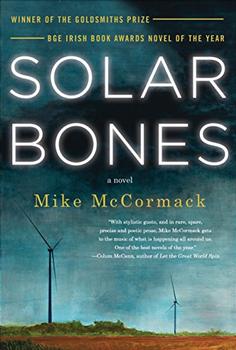Summary | Excerpt | Reading Guide | Reviews | Beyond the book | Read-Alikes | Genres & Themes | Author Bio

The cinematic first chapter of James Salter's new book All That Is is set during World War II, during the Battle of Okinawa, when American forces were slowly "prying" many an island from the Japanese. The chapter serves as a perfect frame of reference for the three men who make up most of its narrative: there's dashing Kimmel who always boasts about his sexual exploits; pious Brownell, who's constantly embarrassed by details about Kimmel's escapades; and finally, Philip Bowman, a run-of-the-mill obedient deckhand who is diligent and does as he's told. While this first chapter is very unlike the rest of the novel, it serves to give us a sneak peek at the characters' personalities and discover how they change (or not) during the course of their lives. Soon the war ends, the camera zooms in and the rest of the book focuses mostly on Bowman as he returns home to the rest of his life.
Salter has said that a particular kind of flawed hero especially appeals to him and Philip Bowman certainly fits the bill. He starts out ambitious (persuading Harvard to admit him despite an initial refusal) but eventually that ambition peters out into a life lived doing what comes easily. I'm no hero," he tells his family when they try to give him a rousing welcome upon his return from the war. No, he is not. After an initial foray into journalism, Bowman settles into a career as editor at a small New York publishing house. His professional triumphs come in small doses and, from the beginning to the end, this is not as much a story about Bowman's accomplishments as it is about the ordinariness of one person's life and how it might possibly mirror our own.
Bowman's personal life is set adrift after his marriage to Vivian Amussen, a blond and attractive young woman from Virginia, falls apart. Vivian, with her home in Virginia's horse country, and her deep South bearings, is so unlike Bowman that it is a wonder that the relationship even lasts as long as it does. From then on, Bowman flits from one woman to the other, never quite knowing what he's looking for and therefore, never finding it either. "He felt the absence, not necessarily of marriage, but of a tangible center in life around which things could form and find a place," Salter writes about his protagonist.
James Salter, who is often referred to as a writer's writer for his exquisite craftsmanship, showcases his expertise with this new book as well. The novel is peppered with beautiful and succinct sentences such as: "Publishing had retained an elegance like a pair of beautiful, bone-shined shoes owned by a bankrupt man." The dialog too is absolutely right on, with a perfect economy of words and realistic banter. Salter's description of a train ride (complete with its tragic ending) and of an ordinary thunderstorm are so well done, they're breathtaking.
Despite its many merits though, the pillar on which this novel rests, Philip Bowman, remains a frustratingly opaque character. Protagonists don't necessarily have to be good or bad for us to engage with them but they have to give us some reason to care. Bowman doesn't. That we can still engage with the story regardless speaks volumes about Salter's writing.
Light Years is my favorite James Salter book. Like All That Is, that novel too is leisurely, unhurried, focusing on the many small ways a marriage can unravel. What helped Light Years, however, was the focus on two individuals. We learned the complexities of the husband and the wife. What's more, together they crafted a marriage that was larger than both of them, and that formed the novel's pulse. In Salter's new novel, you get to see one human being's many minor (and major) flaws take root. Even if Salter does break away to divert the narrative occasionally, and even if you marvel at just how many small life episodes add up to form a brilliant whole, all trails eventually circle back to the flawed hero. This singular focus on just one person's life gets unrelentingly claustrophobic. Salter took nearly ten years to write this book. His unhurried pace shows not just in the novel's perfect sentences but also in the slow-moving narrative which makes the book easy to put down. Sometimes I wished he would just get on with it already.
What defines a life well-lived? Is it fame? Fortune? Love? These are the questions All That Is tries to answer. At the end of the book, Bowman realizes his place in the scheme of things is insignificant. Men both before and after him have and will suffer similar tribulations and celebrate similar small triumphs. "He was certain of only one thing, whatever was to come was the same for everyone who had ever lived. He would be going where they all had gone and – it was difficult to believe – all he had known would go with him..." This is truly all that there is.
Eventually, the book turns out to be like life itself. It kind of floats along chugging at its own languid pace, every day melting into the other. But then, just when you least expect it, along comes a sudden burst of color, shining light on it all in interesting new ways and reshuffling the deck for a fresh set of moves.
![]() This review was originally published in The BookBrowse Review in April 2013, and has been updated for the
February 2014 edition.
Click here to go to this issue.
This review was originally published in The BookBrowse Review in April 2013, and has been updated for the
February 2014 edition.
Click here to go to this issue.

If you liked All That Is, try these:

by Mike McCormack
Published 2018
Solar Bones is a masterwork that builds its own style and language one broken line at a time; the result is a visionary accounting of the now.

by Elizabeth Strout
Published 2016
The profound mother-daughter bond is explored through a mother's hospital visit to her estranged daughter by the Pulitzer Prize-winning author of Olive Kitteridge and The Burgess Boys.
Your guide toexceptional books
BookBrowse seeks out and recommends the best in contemporary fiction and nonfiction—books that not only engage and entertain but also deepen our understanding of ourselves and the world around us.